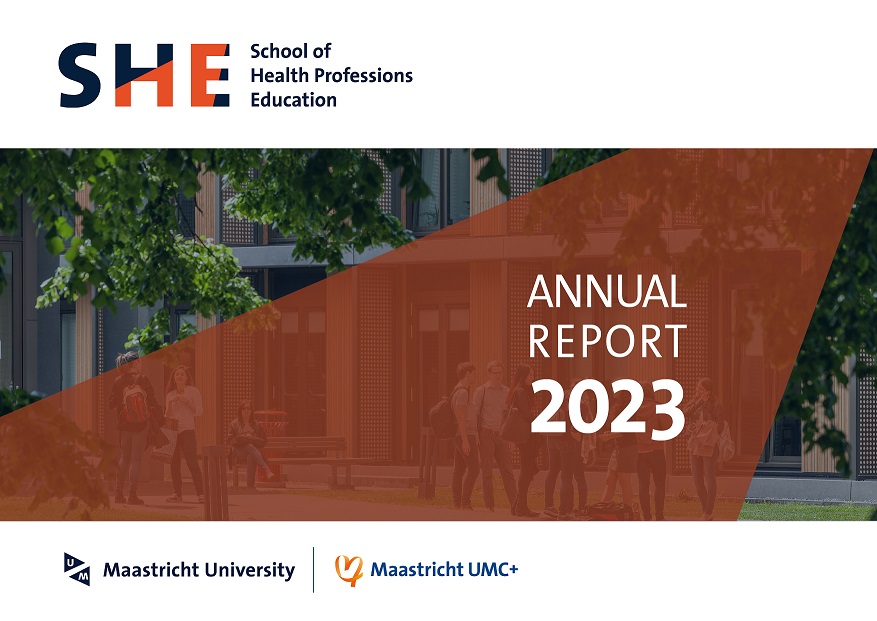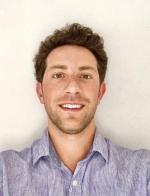From Maastricht to The Hague
Together they helped to build a fraternity within the Maastricht student association Circumflex and now they stand together on the VVD candidate list for the general election in the Netherlands. An interview with UM alumni Martijn Grevink and Pim van Strien about their political ambitions, Mark Rutte and the internationalisation of higher education.
It is exactly five weeks before the Dutch parliamentary elections when Martijn Grevink joins the Zoom meeting from his kitchen in Brussels and Pim van Strien from his children’s nursery in Amsterdam. The two have landed the 45th (Grevink) and 31st (Van Strien) spots on the VVD candidate list after the longest application round of their entire careers. What the real chances are that they will both actually get a parliamentary seat is a big question mark. Grevink: “The last time I looked, there were still no votes cast for the 17 March elections, so it can go either way. Polls don’t tell me much.” But when the time comes, they will go to The Hague full of enthusiasm, a step closer to achieving their political aspirations.

The next few weeks we'll present academics, students and alumni talkin about the upcoming Dutch elections in times of corona.
They built a diverse fraternity together: Ambiorix

They already had some of those aspirations during their student days in Maastricht, they explain. As a law student, Grevink was one of the founders of the Circumflex fraternity Ambiorix, which Van Strien joined immediately when he started his law studies in Maastricht three years later. They themselves describe it as a ‘Burgundian, diverse club of men, who know how to have a good time, but mainly want to roll up their sleeves and get things done’. They were both politically engaged and were able to put that to good use at Circumflex, for example, by joining the association’s board. These days, they still have a lot of contact with fellow members of their year and on the biennial Ambiorix weekend, several generations of Ambiorix men get together and have a few beers. Van Strien: “The nice thing about this fraternity is the diversity of the members. During the introduction period, you’re not forced into a mould of what you have to be like in order to belong.”
They chose an enterprising university
Problem-Based Learning (PBL) was one of the reasons that both of them chose to study in Maastricht. Grevink: “That made the education seem more practical and also more enterprising to me.” Van Strien adds: “Thanks to the young character of the university, not everything was set in stone or completely developed. Perhaps PBL didn’t always work optimally, because it relies heavily on the motivation of the students in your group. Wednesday night was an important night for many fraternities, so every group meeting on Thursday morning was tough.”

Grevink: “But I really liked the enterprising, international character of the university. I meet many UM alumni at the European Commission and it strikes me how well-regarded Maastricht is. They are generally industrious, practical people.” Van Strien: “The pioneering spirit of this still-young student city really appealed to me. You could create things yourself, both within and outside the university. That’s one of the most important formative aspects I took away from Maastricht.”
They want to do more for ‘the public good’
Both already realised in their student days how much satisfaction it gives to organise things for others. As their careers progressed, they developed their skills in the area of ‘the public good’. Van Strien: “I come from an entrepreneurial family and my grandfather had an aversion to two types of people—the powers that be in The Hague and civil servants. Well, that’s what I’m heading towards now. As a civil servant, you can already contribute to many things, but as a politician, you can even more directly enter into discussions and have an impact. I find it inspiring to enter into debate. In the thick of it, where you can do something meaningful for more people, that’s where I want to be.”
Grevink’s political engagement—“I was also active with the VVD during my student days”—matured over the years and also led to his VVD candidacy for the European elections in 2019. “The step to candidacy for the House of Representatives is actually a small one then. It is about representing the people and wanting the best for the Netherlands.” Thinking of his four children, he believes it is important that the next generations are better off than the current ones. “That’s not always so obvious anymore. We are now in a major crisis, but we have to look to the future and invest in the jobs and entrepreneurs of the future, and that’s especially what I want to help with.”
Also read
-
DATASET researchers from Maastricht University (BISCI) and Fontys applied the Digital Readiness Scan developed by Logistiek Digitaal to several regional logistics service providers, scientifically validated the underlying methodology, and analyzed the strengths and weaknesses of this tool.
-
Download our Annual Report from 2023.
-
On 12 June 2024, Dr Domenico Carolei, Lecturer in Public International Law and Public Law at the University of Stirling, gave a talk entitled 'Charting NGO Accountability: Identifying alternative accountability routes'.


